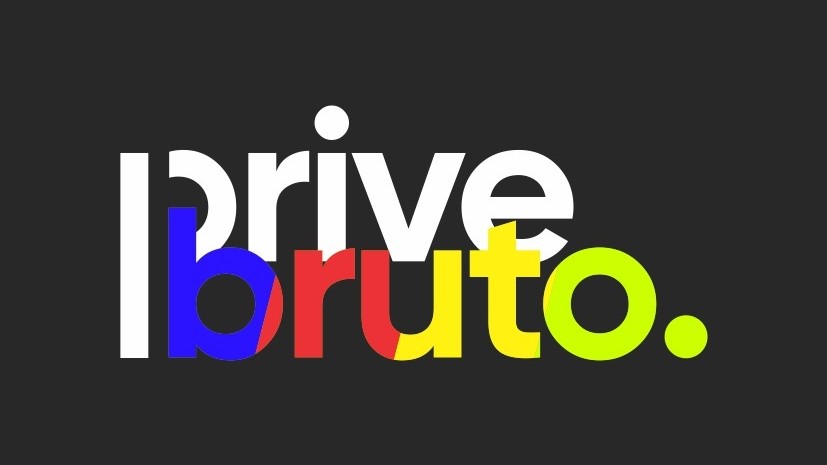Superstitions have woven themselves into the fabric of human culture for millennia, shaping beliefs, rituals, and behaviors across civilizations. Rooted in ancient cultures, these beliefs often centered around symbols, sacred sites, and rituals believed to influence luck and destiny. Today, many of these age-old superstitions continue to influence modern games of chance, blending tradition with entertainment in fascinating ways.
- Introduction: The Intersection of Superstition and Chance
- Historical Roots of Superstitions in Rituals and Symbolism
- From Rituals to Gambling: Evolution of Superstitions in Chance Games
- Modern Chance Games: An Extension of Ancient Beliefs
- Symbols and Their Psychological Effects in Chance Games
- Cultural Significance and the Persistence of Superstitions in Gaming
- Critical Perspectives: Superstitions, Rationality, and the Role of Chance
- Conclusion: Bridging the Ancient and the Modern
1. Introduction: The Intersection of Superstition and Chance
a. Defining superstitions and their origins in ancient cultures
Superstitions are beliefs or practices that are considered irrational or supernatural, often aimed at influencing luck or avoiding misfortune. Their origins trace back to ancient civilizations such as Mesopotamia, Egypt, China, and Greece, where rituals, symbols, and sacred sites were believed to communicate with gods, spirits, or divine forces. These practices served to appease deities or harness unseen energies believed to impact daily life.
- 1. Introduction: The Intersection of Superstition and Chance
- a. Defining superstitions and their origins in ancient cultures
- b. The role of chance in human decision-making and belief systems
- c. Overview of how superstitions influence modern games of luck
- 2. Historical Roots of Superstitions in Rituals and Symbolism
- a. Use of talismans and charms, such as rings with gems, in ancient rituals
- b. Beliefs in gemstones’ healing powers and protective qualities
- c. The mythological and cultural significance of sacred sites like Olympus, described as bathed in golden light
- 3. From Rituals to Gambling: Evolution of Superstitions in Chance Games
- a. Transition of superstitious practices from sacred rituals to entertainment
- b. Common superstitions associated with gambling and games of luck
- c. The psychological impact of superstition on players’ decision-making
- 4. Modern Chance Games: An Extension of Ancient Beliefs
- a. How contemporary games incorporate symbolic elements reminiscent of old superstitions
- b. The role of visual design and symbols—gems, lights, and mythological themes—in enhancing player experience
- c. Example: view here as a modern illustration, featuring mythological motifs and symbols of luck and divine favor
- 5. Symbols and Their Psychological Effects in Chance Games
- a. The significance of gems and talismans in influencing player confidence and perceptions of luck
- b. The impact of thematic elements like Olympus’s golden light in creating immersive experiences
- c. Non-obvious factors: How design choices evoke ancient superstitions to shape modern gameplay
- 6. Cultural Significance and the Persistence of Superstitions in Gaming
- a. The enduring appeal of mythological and supernatural themes in modern entertainment
- b. Cross-cultural comparisons of superstitions related to chance and luck
- c. The influence of ancient beliefs on marketing and branding of modern games
- 7. Critical Perspectives: Superstitions, Rationality, and the Role of Chance
b. The role of chance in human decision-making and belief systems
Humans have long sought to understand and influence randomness—be it through divination, rituals, or lucky objects—because chance introduces uncertainty. Believing in superstitions provides psychological comfort, offering a sense of control over unpredictable outcomes. This interplay between chance and belief is fundamental to many cultural practices and remains evident in today’s gaming environments.
c. Overview of how superstitions influence modern games of luck
Modern chance games, such as slot machines and online casinos, continue to embed symbols and themes rooted in ancient superstitions. These elements enhance the gaming experience by tapping into deep-seated beliefs about luck and divine favor, making the games more immersive and psychologically engaging. A prime example is the use of mythological motifs or gemstones, which evoke ancient rituals and symbolize fortune.
2. Historical Roots of Superstitions in Rituals and Symbolism
a. Use of talismans and charms, such as rings with gems, in ancient rituals
Ancient peoples often wore talismans—objects believed to carry protective or lucky powers. Rings set with particular gemstones, such as sapphires or rubies, were common in rituals aimed at warding off evil or attracting prosperity. These charms acted as tangible links to divine or supernatural forces, reinforcing the belief that material objects could influence unseen energies.
b. Beliefs in gemstones’ healing powers and protective qualities
Throughout history, gemstones have been associated with specific healing and protective properties. For example, amethysts were believed to prevent intoxication, while jade was thought to promote health and longevity. Such beliefs reinforced the idea that these stones could influence luck and safeguard individuals from harm, embedding them deeply into cultural rituals.
c. The mythological and cultural significance of sacred sites like Olympus, described as bathed in golden light
Sacred locations such as Mount Olympus in Greek mythology symbolize divine power and favor. Olympus was often depicted as bathed in golden light, representing divine illumination and blessing. Such imagery reinforced the idea that proximity to sacred sites or divine symbols could influence human luck and success, a concept that persists in modern mythological and gaming motifs.
3. From Rituals to Gambling: Evolution of Superstitions in Chance Games
a. Transition of superstitious practices from sacred rituals to entertainment
Over centuries, many superstitions migrated from sacred contexts into recreational activities. Gambling, in particular, transformed rituals into entertainment, preserving symbols like lucky charms and auspicious gestures. This evolution reflects a shift from spiritual reliance to psychological comfort and entertainment, while maintaining the core belief in symbols influencing outcomes.
b. Common superstitions associated with gambling and games of luck
- Knocking on wood after a good hand or before a spin
- Wearing specific colors, like red, believed to attract luck
- Touching or holding lucky charms during gameplay
- Choosing certain numbers or symbols, such as 7 or horseshoes
c. The psychological impact of superstition on players’ decision-making
Superstitions serve as cognitive tools that reduce anxiety and provide a perceived sense of control. Studies have shown that players who believe in lucky objects or rituals tend to experience heightened confidence, which can influence their behavior and risk-taking. This psychological comfort is a key reason these practices persist, even when their efficacy is scientifically debunked.
4. Modern Chance Games: An Extension of Ancient Beliefs
a. How contemporary games incorporate symbolic elements reminiscent of old superstitions
Modern slot machines and online games frequently feature symbols like gems, mythological figures, and lucky icons that evoke ancient superstitions. These elements are deliberately designed to resonate psychologically, tapping into cultural associations of luck, divine favor, and protection. For example, the use of mythological motifs, such as gods or divine light, reinforces a sense of connection to higher powers that influence outcomes.
b. The role of visual design and symbols—gems, lights, and mythological themes—in enhancing player experience
Visual cues like sparkling gems, glowing lights, and mythological imagery create immersive environments that evoke feelings of luck and divine intervention. These design choices are grounded in psychological principles, as they reinforce positive associations and heighten excitement, making gameplay more engaging and emotionally resonant.
c. Example: view here as a modern illustration, featuring mythological motifs and symbols of luck and divine favor
Games like Gates of Olympus 1000 exemplify this trend by integrating mythological themes, shining gold elements, and symbols of divine luck. These features aim to create a sense of divine presence, aligning with ancient beliefs that luck is influenced by higher powers, thus enriching the player’s experience.
5. Symbols and Their Psychological Effects in Chance Games
a. The significance of gems and talismans in influencing player confidence and perceptions of luck
Gems and talismans act as tangible symbols of luck, often embedded in game designs or used as personal objects. Their presence boosts players’ confidence, creating a psychological illusion that they can influence outcomes—mirroring ancient beliefs that these objects possess protective or luck-bringing powers.
b. The impact of thematic elements like Olympus’s golden light in creating immersive experiences
Thematic visuals, such as golden illumination reminiscent of Olympus, evoke divine presence and favor. This design choice fosters an immersive atmosphere that enhances emotional engagement, making players more receptive to the idea of luck and divine intervention influencing their success.
c. Non-obvious factors: How design choices evoke ancient superstitions to shape modern gameplay
Beyond explicit symbols, subtle design elements—color schemes, lighting effects, and mythological motifs—are strategically employed to subconsciously evoke feelings of luck, protection, and divine favor. These choices tap into deep-rooted cultural memories, shaping player perceptions and behaviors without overtly acknowledging superstitions.
6. Cultural Significance and the Persistence of Superstitions in Gaming
a. The enduring appeal of mythological and supernatural themes in modern entertainment
Themes rooted in mythology and the supernatural continue to captivate audiences, driven by their timeless narratives of divine power and luck. These themes evoke a sense of wonder and belief in higher forces, making them enduring elements in gaming and entertainment industries.
b. Cross-cultural comparisons of superstitions related to chance and luck
Many cultures share similarities in superstitions related to luck—such as the significance of lucky numbers, symbols, or rituals—highlighting a universal human tendency to seek control over randomness. For instance, while the number 7 is considered lucky in Western cultures, the Chinese associate luck with the number 8, influencing game design and marketing worldwide.
c. The influence of ancient beliefs on marketing and branding of modern games
Game developers and marketers often leverage ancient symbols and mythological themes to attract players, tapping into collective cultural memories. This strategy enhances brand identity and emotional appeal, as seen in game titles, promotional imagery, and thematic branding that evoke divine luck and supernatural power.
7. Critical Perspectives: Superstitions, Rationality, and the Role of Chance
a. Debunking myths vs. understanding psychological comfort provided by superstitions
While scientific research often debunks superstitions as irrational, their psychological benefit remains evident. They offer comfort, reduce anxiety, and foster hope—elements that can enhance engagement and enjoyment in gaming, regardless of their factual accuracy.







